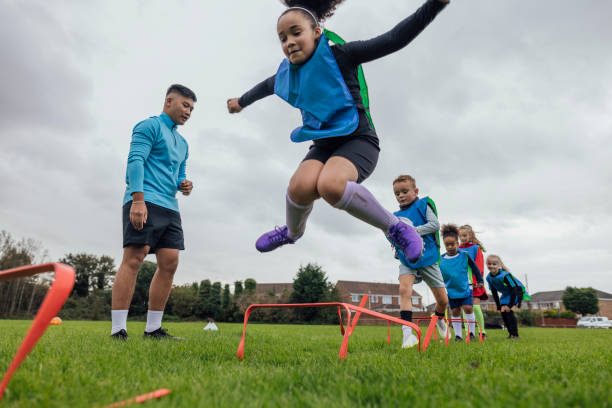The Power of Sports: More Than Just Games
Sports have always played a significant role in human history, from the ancient
Olympic Games to modern-day competitions. They are not just about winning or losing;
sports serve as a bridge that connects people from different cultures, backgrounds,
and nations. Whether it’s a local community event or an international competition,
sports can unite people, inspire passion, and foster teamwork.
Physical and Mental Health Benefits
Engaging in sports has numerous benefits, including improved physical fitness,
better mental health, and enhanced social connections. Regular participation in
sports helps maintain a healthy weight, strengthens muscles, and boosts
cardiovascular health. Mentally, sports teach resilience, discipline, and the
ability to cope with failure. For many, sports serve as an outlet for stress and a
way to escape the pressures of daily life.
Sports as a Global Language: Bridging Divides

One of the most beautiful aspects of sports is how it transcends borders. Regardless
of nationality, language, or background, people around the world can come together
over a shared love of the game. Events like the FIFA World Cup, the Olympics, and
the Super Bowl bring together millions of fans, creating a sense of unity and
belonging.
Sports Diplomacy: Uniting Nations
Sports also play a vital role in diplomacy. Through initiatives like "sports
diplomacy," countries use sporting events to promote peace, collaboration, and
understanding. Sporting exchanges, tournaments, and joint training camps are often
used to ease tensions between nations and build relationships that go beyond
politics. The power of sports to break down barriers and foster international
cooperation has been demonstrated in moments like "ping-pong diplomacy" between the
United States and China during the 1970s.
The Future of Sports: Innovation and Technology

As technology advances, the world of sports is evolving rapidly. From virtual reality
training to AI-powered performance analysis, the integration of technology is
changing how athletes train, compete, and interact with fans. The future of sports
looks promising, with new innovations constantly reshaping the landscape of how
games are played and experienced.
Advancements in Sports Technology
Wearables that track performance, drones for aerial footage, and AI-driven analytics
are just the beginning. Coaches can now use real-time data to adjust tactics during
a game, while athletes can monitor their physical conditions more closely than ever
before. Additionally, with the rise of e-sports and virtual competitions, technology
is creating new forms of sports entertainment that allow fans to engage in entirely
different ways.